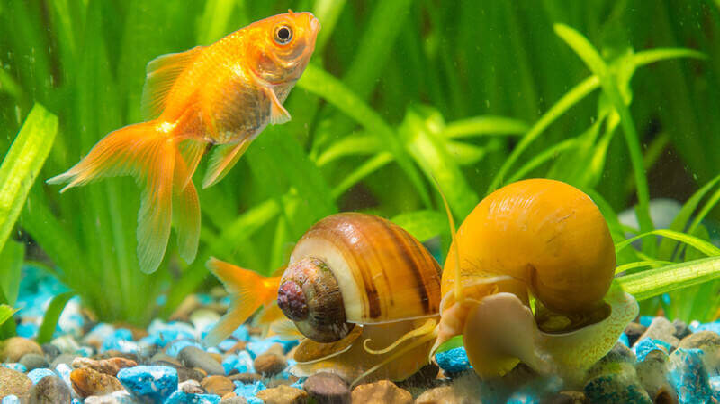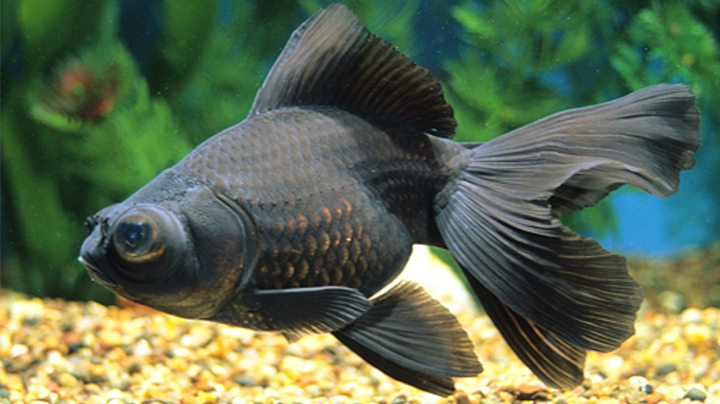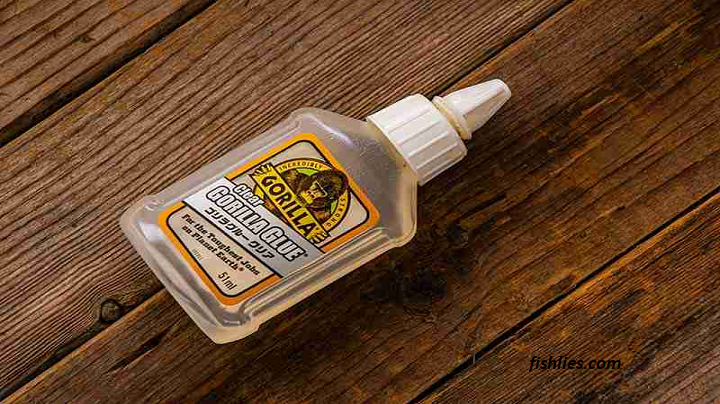Many people want to know that Do Snails Eat Algae? They Do. But! If you’ve ever seen a snail moving around in your fish tank, you may have wondered if they eat algae. The answer is yes, snails do eat algae. But there’s a bit more to the story than that.
Do snails eat algae?
Yes, snails do eat algae in fish tanks. In fact, they are often used as a natural way to control algae growth in aquariums. Snails will graze on algae throughout the day, helping to keep your tank clean and free of unwanted growth.
Snails are a common addition to fish tanks because they help keep the tank clean by eating algae. But how do snails actually eat algae?
Snails have a radula, which is a tongue-like structure that is covered in tiny tooth-like projections. The radula scrapes algae off of rocks and glass, and the snail then swallows the algae.
Some people believe that snails only eat algae, but this is not true. Snails are omnivores, which means that they will eat just about anything. In addition to algae, snails will also consume fish food, dead fish, and even other snails.
Snails do eat algae in fish tanks. They are known to dine on algae, dead plant material, and even dead fish. This makes them a valuable asset to any aquarium as they help keep the tank clean.
They can actually be quite beneficial to a fish tank. Not only do they help keep the tank clean, but they also provide a source of food for other fish and invertebrates.

Do Snails Eat Algae In Ponds?
A common question we get here at the pond shop is “do snails eat algae in ponds?” The answer is both yes and no. While snails will consume algae, they are not typically considered a desirable addition to most ponds as they can quickly become overpopulated and become a nuisance.
In nature, snails play an important role in the decomposition of organic matter which helps to maintain a healthy ecosystem balance. However, in man-made ponds they can throw off this delicate balance leading to an increase in waterborne illnesses, particularly in young children.
If you have a snail problem in your pond, the best course of action is to remove them manually or use an approved chemical treatment.
In a lot of cases, snails can’t eat single-cell algae. They need to have something to scrape the algae off of so they can ingest it. In some ponds, there may not be enough rocks or other hard surfaces for the snails to graze on. As a result, the snails may starve and the pond may become overrun with algae.
Do Snails Eat Algae Blooms?
Algae blooms are often seen as a nuisance, but did you know that some animals actually eat them? Snails are one type of animal that will consume algae blooms.
There are many different types of snails, but most of them are herbivores. This means that they primarily eat plants, including algae. Algae blooms can be a major food source for snails since they often occur in large numbers and cover a wide area.
While snails do eat algae blooms, they aren’t the only creatures that do. Many types of fish, invertebrates, and even some mammals will also consume algae. So if you’re ever wondering who’s eating all the algae, now you know!
A new study has found that snails may help to control cyanobacteria blooms in lakes. Cyanobacteria, also known as blue-green algae, are a type of planktonic algae that can form large blooms in lakes and other bodies of water. The study found that snails will consume cyanobacteria blooms when they are present.
This helps to reduce the size of the bloom and prevents it from causing harm. The study also found that snails are more likely to consume cyanobacteria blooms when they are smaller in size. This suggests that snails could help to control these blooms before they get too large.
Do Snails Eat Algae Wafers?
Algae wafers are made from processed algae and other ingredients such as wheat flour, fish meal, and vitamins. They are shaped into small pellets that sink to the bottom of the tank where snails can easily reach them.
Yes, snails eat algae wafers. Algae wafers are a type of food that is specifically made for snails. They are a great source of food for snails and help keep their tank clean.
Do Snails Eat Brown Algae?
Most algae-eating snails do not eat brown algae. Instead, they prefer to munch on green algae, which is more nutritious. There are a few exceptions, however. Some species of snail will eat brown algae if it is the only food available.
Brown algae are not as palatable as green algae, so most snails will avoid it if they can help it. The exception to this rule is some species of grazing snail, which will eat just about anything in order to survive. If you have brown algae in your aquarium and you want to get rid of it, your best bet is to introduce some grazing snails into the tank.
Nerite snails are one of the most popular choices for freshwater tanks. They are known for their ability to eat brown algae and keep your tank clean. However, do nerite snails actually eat brown algae?
Algae Eating Snails
Do Mystery Snails Eat Algae?
Mystery snails are a type of freshwater snail that is known for its beautiful colors and hard work ethic when it comes to cleaning algae off surfaces.. But do mystery snails actually eat algae?
The answer is yes! Mystery snails are great at eating algae and helping to keep your aquarium clean. They will often graze on the alga that grows on the glass, plants, and decorations in your tank. Not only does this help to keep your tank looking clean, but it can also prevent the growth of harmful bacteria.
It turns out that mystery snails do eat algae, but they are not especially efficient at it. In most cases, it is better to use other methods of controlling algae growth in your aquarium.
While most people think of snails as pests, mystery snails are actually quite helpful in keeping aquariums clean .If you are looking for a helpful addition to your aquarium cleaning crew, then look no further than the mystery snail!
Do Assassin Snails Eat Algae?
Assassin Snails, or Clea helena, are a freshwater snail that many aquarium enthusiasts use to control algae growth in their tanks. While they are most commonly known for their ability to eat nuisance algae, they are also equipped with a venomous harpoon-like tooth that they use to kill and eat other snails.
Do Assassin Snails Eat Algae?
The answer is yes! Assassin snails will consume various types of algae in the aquarium including green algae, diatoms, black beard algae, and cyanobacteria. They are particularly adept at eating hair algae. In addition to eating algae, assassin snails also consume uneaten fish food, detritus, and decaying plant matter.
Do Mystery Snails Eat Brown Algae?
Mystery snails are a type of freshwater snail that is often used in aquariums. They are known for their scavenging habits and ability to eat a variety of food items, including algae.
While mystery snails will eat many types of algae, they seem to prefer green algae over brown algae. This may be because green algae is more nutritious or simply because it is easier for them to digest. Regardless of the reason, if you have a mystery snail in your aquarium and notice brown algae starting to grow, don’t worry – your snail will take care of it!
Do Apple Snails Eat Algae?
Apple snails are a type of freshwater snail that is native to South America. They are also popular in the aquarium trade. Apple snails are well known for their voracious appetite and their ability to eat a wide variety of plants and animals.
Apple snails will consume both green algae and brown algae. They have even been known to eat hair algae. In the wild, apple snails typically graze on algae that grow on rocks and other hard surfaces. In an aquarium, they will often eat the algae that grow on the glass or decorations.
They are excellent algae munchers and can help keep your aquarium clean. If you have a lot of algae in your tank, then adding a few apple snails can be a great way to get rid of it.
They are omnivorous, meaning they will eat both plants and animals. In the wild, apple snails will eat just about anything they can find, including dead fish, other snail species, and decaying vegetation.
In an aquarium setting, apple snails should be given a diet that consists of both plant matter and meaty foods. A good way to provide them with both is to offer them blanched vegetables like zucchini or spinach as well as freeze-dried shrimp or bloodworms.
Do Ramshorn Snails Eat Algae?
Ramshorn snails are often referred to as “algae munchers.” They have a big appetite for algae, and can help keep your aquarium clean.
If you have an algae problem in your aquarium, adding a few ramshorn snails may be the solution. These little creatures will munch on algae all day long, helping to keep your tank clean and clear.
While they are helpful in keeping your aquarium clean, ramshorn snails can also become a nuisance. They reproduce quickly and can soon take over your tank if you’re not careful. If you don’t want them to take over, it’s best to limit the number of snails you add to your aquarium.
It turns out that ramshorn snails will eat just about anything they can fit into their mouths, including algae. In addition toalgae, these snails also consume fish eggs and leftover food. This makes them valuable members of the cleaning crew in many aquariums.
While ramshorn snails will eat algae, they prefer softer, leafy greens and may not consume enough to make a significant dent in a heavy algae growth. They also prefer water with a pH between 6 and 7, so if your tank is outside of this range, your snails may not be as interested in eating algae.
Do Nerite Snails Eat Algae?
Nerite snails are a popular choice for aquariums because they are known to help keep tanks clean by eating algae. But just how much algae do nerite snails eat?
A study published in the journal Hydrobiology looked at the grazing habits of nerite snails in aquaria. The study found that nerite snails consume between 0.5 and 4 grams of algae per day. This means that a single nerite snail can consume up to 1/3 of its body weight in algae each day!
While most nerite snail species are effective at eating algae, some are better than others. The best algae-eating nerite snail species include the zebra Neritina natalensis, the horned Neritina turrita, and the black-and-white striped Clithon diadema.
Nerite snails require a pH level of 7 or above in order to thrive. If you have nerite snails in your aquarium, be sure to monitor the pH level closely.

Do Rabbit Snails Eat Algae
Rabbit snails are a fresh water species of snail that are known to grow up to 5 inches. They are usually found in tropical climates and prefer to eat algae. Some larger species of rabbit snail may also eat other small invertebrates.
Rabbit snails are a great addition to any aquarium because they help keep the tank clean by eating algae. They are peaceful creatures that get along well with other fish and snails. If you are looking for a pet snail, a rabbit snail is a good option.
They release a slime that helps to fertilize the surrounding area and encourages the growth of algae. This provides them with a food source as well as a place to lay their eggs.
Do Snails Need Algae?
Algae are an important part of a snail’s diet. Snails need algae to help them digest their food and to provide them with essential nutrients. Without algae, snails would not be able to survive.
There are many different types of algae that snails can eat. Some of the most common types of algae that snails eat are spirulina, chlorella, and kelp. Algae are a great source of vitamins and minerals for snails. They are also a good source of protein.
Snails need to eat a lot of algae to get all the nutrients they need. A healthy snail diet should consist of at least 50% algae. If you are feeding your snail a diet that does not contain enough algae, you may notice your snail’s health deteriorating.
Do Aquarium Snails Help With Algae?
Aquarium snails are a common sight in many fish tanks. These little creatures can be helpful in keeping your tank clean and free of algae. But how do they do it?
Aquarium snails are known for their scavenging abilities. They will eat just about anything, including algae. This helps to keep your tank clean and free of unwanted growths.
Snails also help to aerate the gravel in your tank. This helps to keep the water quality high and prevents the build-up of harmful toxins.
So, if you’re looking for a little help in keeping your aquarium clean, consider adding some snails to your tank.

Can You Have Snails With Algae Eaters?
Yes, you can have snails with algae eaters. Many people believe that snails and algae eaters are natural enemies, but this is not the case. In fact, snails and algae eaters can coexist peacefully in the same aquarium.
There are a few things to keep in mind if you want to keep snails and algae eaters together. First, make sure that the algae eater is large enough not to be eaten by the snail. Second, provide plenty of hiding places for the snail so it can escape the algae eater if necessary. Third, increase the amount of food you feed your fish to compensate for the extra food that the snail will consume.
With a little bit of planning, you can successfully keep snails and algae eaters together in your aquarium.
Do Snails Eat Dead Fish?
Snails are often associated with eating plants, but they will also consume decaying flesh. This means that snails can and do eat dead fish. While a snail’s diet consists mostly of algae, they are not averse to scavenging for other food sources when necessary. Their ability to digest both plant and animal matter makes them opportunistic feeders.
In the wild, snails typically eat dead fish that have sunk to the bottom of a body of water. They will also eat dead insects, worms, and other small creatures. Snails are not discriminating when it comes to their meals and will consume just about anything that is available to them. This makes them an important part of the ecosystem as they help to clean up the environment by consuming decomposing matter.
Do Snails Eat Fish Eggs?
It’s a common question asked by pond-owners: do snails eat fish eggs? The simple answer is yes, snails are known to eat fish eggs. But why do they do it?
There are a few reasons why snails might eat fish eggs. One reason is that the snail is simply hungry and the fish eggs are an easy source of food. Another possibility is that the snail is looking for calcium. Fish eggs are a good source of calcium, and snails need calcium to build their shells.
If you find that your pond’s population of fish is dwindling, it’s possible that snails are to blame. Take steps to control the snail population in your pond and protect your fish population.
Do Snails Eat Fish Food?
Most people think that snails are only interested in eating plants. However, snails will also consume fish food if it is available to them. There are a few reasons why snails might choose to eat fish food instead of plants.
One reason is that fish food is often higher in protein than plant-based food. Snails need protein to support their shells and bodies, so they will gravitate towards foods that are rich in this nutrient. Another reason is that fish food is often softer and easier to chew than plants. This can be helpful for snails who have trouble digesting tough plant matter.
If you have both snails and fish in your aquarium, you should provide plenty of both types of food to ensure that everyone is getting the nutrients they need.
Conclusions
In conclusion, snails do in fact eat algae. This is good news for aquarium owners, as it means there is another way to help keep tanks clean. As with any new addition to a tank, however, it is important to do research to make sure the snail will be compatible with the other fish and plants before adding it to the ecosystem.
Not only do snails eat algae, but they also help to control the growth of it. This is because when they graze on algae, they prevent it from getting too big and taking over an area. This helps to keep ecosystems in balance and can even improve water quality.
Though they are often considered pests, snails play an important role in the ecosystem by eating algae. Algae are a type of phytoplankton that provides food and energy for many marine creatures. Without snails to eat them, algae could quickly take over an area, smothering other plants and animals. By eating algae, snails help to keep the ecosystem in balance.







